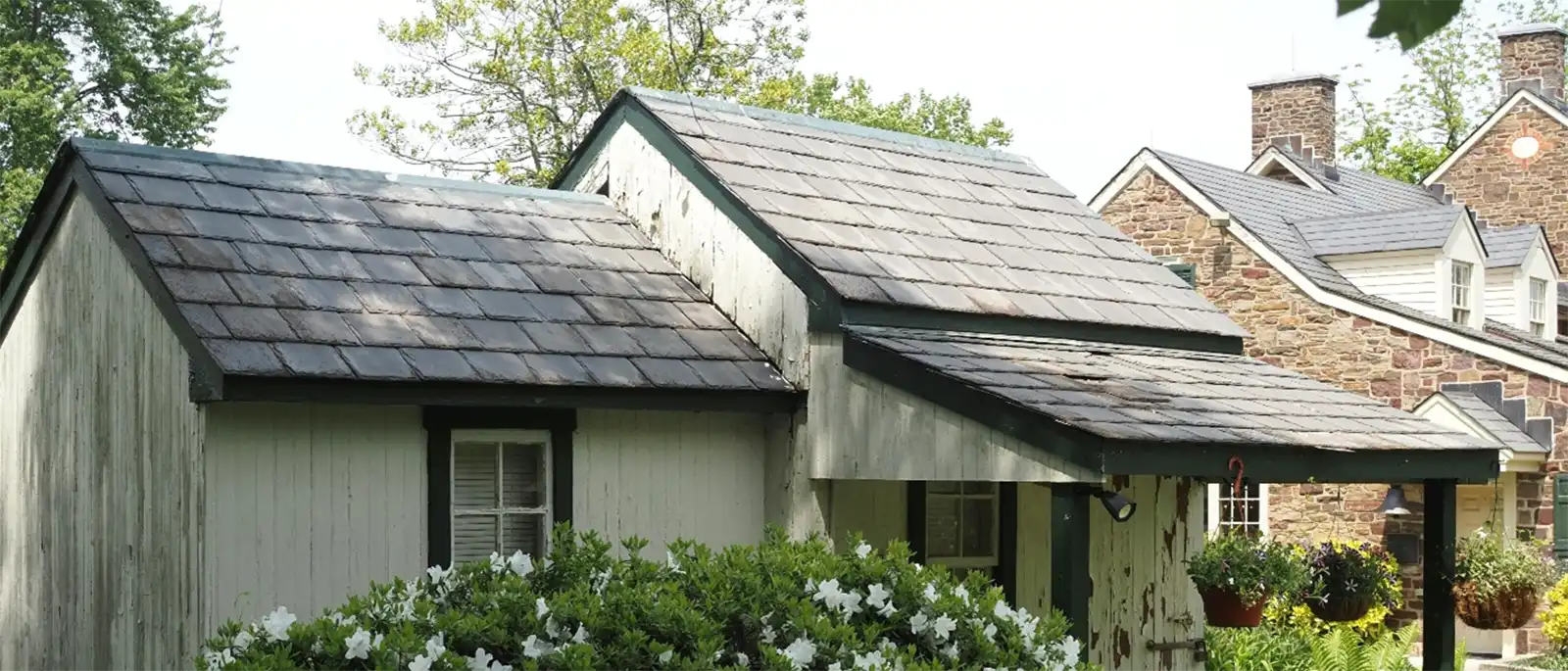
Deed fraud, or deed theft, is the improper transfer of property ownership by deceit. In most states, it’s a very rare incident. But when it happens, it’s devastating.
State criminal laws do generally deal with theft, forgery, and fraud. And yet, many don’t have a specific law for deed theft.
In Pennsylvania, Representatives Christopher Rabb and Timothy Bonner recently introduced House Bill 1406. Rabb is a Democrat. Bonner is a Republican. And their new, bipartisan bill would create a new criminal offense of deed fraud.
A Lawmaker’s Awakening
So far, Pennsylvania doesn’t have a law on its books covering theft, conspiracy, or attempted theft of real estate specifically. But Christopher Rabb didn’t come up with the idea of outlawing deed fraud simply by scanning the books. For the impulse behind House Bill 1406, Rep. Rabb credits a senior resident of Philadelphia who lost her home, and approached the representative asking for help. That’s when the penny dropped.
“It’s pretty remarkable,” Rabb said, “that in 2025 we still do not have a law to safeguard homeowners from fraudulent property transfers.”
Rabb believes the law will be worthwhile if it stops even one deed holder from losing their hard-earned property value.
Rep. Bonner agrees. Bonner insists that “all attempts by thieves to steal ownership of property” should be countered. To that effect, Bonner says, this newly proposed law would deter and punish those who come up with schemes to falsify deeds.
What a New Law Can Do
Deed fraud typically involves scammers who wrongly claim control over a deed — behind the back of the rightful owner. If passed in Pennsylvania, the proposed law will obstruct these types of swindles, by:
- Spelling out a definition for deed fraud, and laying out the penalties.
- Equipping law enforcement with the legal tools necessary to investigate and prosecute.
- Establishing legal standing for the deed holders who become fraud targets. The law would clear a dedicated path for victims to recover their stolen deeds, through a defined process to challenge the theft in court and reclaim the real estate.
According to Reps. Rabb and Bonner, this will be a milestone in deed law for Pennsylvania. It will mark the first time the Commonwealth has had a definition of “deed fraud.” It will focus on intentional fraud. It will serve to prevent the creation of falsified deeds. Its penalties for deed fraud will be laid out in degrees, to match the seriousness of the specific incidents and the total financial harm faced by the targeted homeowners.
Thus, under Pennsylvania’s HB 1406 (assuming it passes), the crime of deed fraud will comprise an intentional, fraudulent transfer of real estate, by way of forgery or altered or falsely executed deeds, or other deceptions.
Philadelphia Case Brings Urgent Vibe

Recently, a notary was charged with running a scheme to falsify at least 21 deed transfers in Philadelphia. Before this case, HB 1406 would have much less momentum. That’s because shady deed transfers are uncommon across the whole of Pennsylvania.
But the alleged misdeeds of Philadelphia notary Gwendolyn Schell brings a sense of urgency to the project of creating a legal crime of deed fraud.
Schell’s alleged involvement in an extensive property theft operation dates back to 2017, so Philadelphia law enforcement is now mired in a tangle of corrupt deed transfers, and subsequent sales to unsuspecting home buyers, that went on over eight years. Prosecutors say Schell and several (as yet unnamed) co-conspirators carried out the fraudulent deed transfers by pretending to sign deeds of deceased deed holders as well as forging the deeds in living homeowners’ names. The deed notarizations give the impression that Schell witnessed the homeowners (including dead ones) sign over their deeds, say prosecutors.
Prosecutors have brought 250 criminal counts against the accused, according to the Philadelphia District Attorney, Larry Krasner. Of course, none of those charges are specifically called by the name deed fraud.
At the time of this writing, some family and heirs have recovered their homes. Others haven’t. They’re still working their way through the civil court system, struggling to find legal pathways to get their deeds back into their own names.
How Not to Lose Your Deed to Thieves
Odds are, fraud won’t happen to your deed, or to any deeds held by people you know. But if it does, it’s a complicated, costly, very extensive project to fix.
We want our deed holding community to be safe, not sorry. So here’s a precautionary checklist every deed holder might like to consider:
- Get your estate planning done. Address your deed’s future in your trust or will. If you remember to include your deed when writing a will, when the time comes, the probate court will issue an official deed for the future owner whom you designate. (Be sure the way your deed is vested matches up!)
- Check with your county. Find out if it offers automatic deed claim alerts. If so, register. At least you’ll know about any fraudulent claim on your deed this way. If anything happens, your prompt call to the authorities can be the reason a swindler can’t sell your property to someone else.
- Help seniors sign up for county deed alerts, if available. Never press a senior to transfer a deed. Avoid the appearance of undue influence. For senior deed transfers, get loved ones on board. Obtain a local lawyer’s assistance.
Finally, note that deed fraud becomes more likely when someone dies or moves out of the home and leaves it empty. Have a plan in place for careful stewardship of the deed and home.
Are you acquiring a deed? Why not get yourself a title policy in your name? You only need to pay one premium, at closing. Then, you as the deed holder (not just your lender) are covered. Check whether the policy offers deed fraud protection. Getting covered for fraud against the title usually means purchasing an enhanced title insurance policy.
An Ounce of Stress Prevention
Keeping a household running is hard enough these days for the average working person. While these tips can’t guarantee protection, they can help reduce risks. After all, who can afford to lose a home, then endure heaps of stress and legal expenses to try to recover the deed?
HB 1406 could plausibly prevent such incidents from being plotted in the first place. The Pennsylvania lawmakers who back this bill are doing a good deed. The bill is now in the Pennsylvania House, awaiting a vote by the Housing and Community Development Committee. We look forward to keeping our readers posted.
Supporting References
Jake Reyes for WGAL (NBC News 8): New Bill Aims to Prevent Deed Theft in Pennsylvania (May 8, 2025; citing an 8 On Your Side investigation).
Jonathan Delozier for HousingWire.com, from HW Media, LLC: Pennsylvania Lawmakers Target Protections Against Deed Fraud (May 22, 2025).
PA House of Representatives (Rep. Christopher M. Rabb for Pennsylvania House Democrats), via PAHouse.com: Rabb Introduces Bipartisan Bill to Tackle Deed Fraud Legislation to Establish New Criminal Offense Protecting Pennsylvania Homeowners (May 6, 2025).
Deeds.com: Say It Ain’t So – A Pennsylvania Notary, Stealing Deeds? (May 21, 2025).
More on topics: House theft in Philadelphia,New York – new crime of deed fraud
And as linked.
Photo credits: Gene Samit and Kampus Production, via Pexels/Canva.
